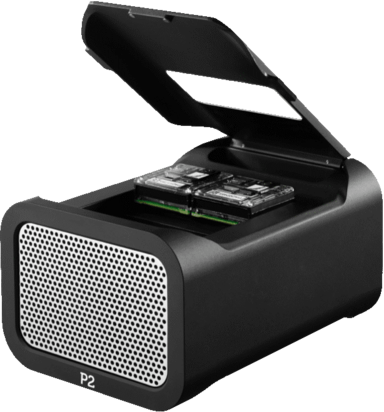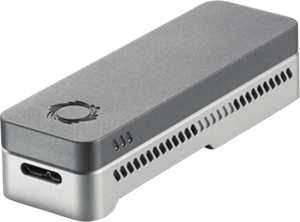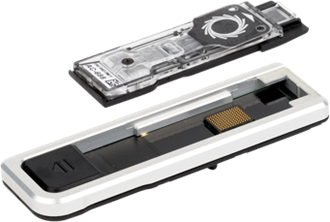Breadcrumb
- Home
- Genomics Division
- Genome Sequencing
- Long Read Sequencing
Long Read Sequencing
The IIHG Genomics Division provides massively parallel DNA sequencing using the Oxford Nanopore Technologies Long-read platform. The Oxford Nanopore Technologies platform is a third generation NGS technology that permits the ability to directly sequence native DNA or RNA without amplification. Because base detection and calling can be achieved without first amplifying the target, PCR bias effects are eliminated from the data. By working with native DNA/RNA, strand and base modification (e.g., 5mC and 5hmC) information can also be collected.
The long read capabilities of the pore-based flow cells permit sequencing through long repeat regions as compared to short-read NGS. These long reads have also been particularly useful for detecting structural variants throughout the genome. Reads are typically 5kb-40kb, though longer reads up to 250 kb+ can be achieved with DNA extraction optimization. DNA samples can also be multiplexed to permit sequencing of multiple samples per flow cell.
Investigators can submit RNA/DNA samples for library preparation and sequencing or submit their own prepared libraries and have us perform the sequencing. To complement our long-read sequencing service, the IIHG Bioinformatics Division supports the analysis of the data generated by this platform. All data are backed up and archived following the IIHG NGS data storage policy.
Oxford Nanopore Platforms
PromethION P2 | MinION | Flongle | |
|---|---|---|---|

|

|

| |
Yield/flow cell | 100 to 290 Gb | 30 to 48 Gb | 1.8 to 2.6 Gb |
Applications |
|
|
|
Sample Submission
All projects will start with a meeting to go over the workflow including sample preparation, submission requirements and downstream analysis solutions.
Request Consultation
Long sequencing reads can be collected from genomic DNA, RNA, cDNA, 16S or other amplicons. Input amounts will depend on library type and application. Specific input amounts and sample concentrations will be discussed during the meeting.
Fee Schedule
(effective June 1, 2025)
Library Prep | Number ofSamples | CostPer Sample |
|---|---|---|
RNA Ligation Sequencing (non-barcoded) | 1 | $315 |
DNA Ligation Sequencing (non-barcoded) | 1 | $315 |
DNA Ligation Sequencing (barcoded) | 1 | $415 |
| 2-24 | $40 per sample |
DNA Rapid Sequencing | 1 | $155 |
| 2-24 | $30 per sample |
Sequencing | Number ofFlow Cells | CostPer Flow Cell |
|---|---|---|
MinION R10.4.1 | 1 | $890 |
MinION RNA | 1 | $890 |
Flongle | 1 | $250 |
PromethION R10.4.1 | 1 | $1,100 |
PromethION RNA | 1 | $1,100 |
Self-Service | TBD | TBD |
*Flow cell cost discounts may be available if purchased in bulk (12+ flow cells). Please note flow cell expiration date is 3 months (1 month for Flongle). Use after this date is at the investigator’s risk.